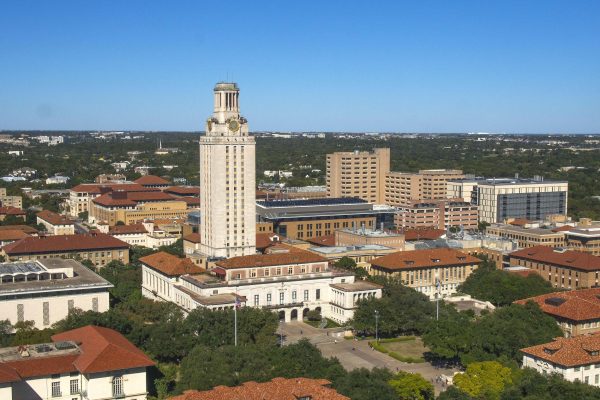AUSTIN, Texas — Three faculty members of The University of Texas at Austin have received 2022-2023 Fulbright U.S. Scholar Program awards from the U.S. Department of State and the Fulbright Foreign Scholarship Board.
UT Austin’s Paola Canova, Mitchell Pryor and Catherine Weaver will conduct research and/or teach abroad during the 2022-2023 academic year, thanks to the Fulbright U.S. Scholar Program. Annually, more than 800 U.S. scholars, artists and professionals from all backgrounds teach or conduct research overseas through the program.
“The University of Texas at Austin commends this year’s faculty recipients of the Fulbright U.S. Scholar awards,” said Sonia Feigenbaum, senior vice provost for global engagement and chief international officer. “We are proud of their significant contributions in transnational teaching and research, and of the university’s longstanding partnership with Fulbright. This opportunity will advance the work of these professors in their respective fields while cultivating collaboration between UT Austin and our peer institutions abroad.”
The Fulbright Program is the U.S. government’s flagship international educational exchange program, supported by the people of the United States and partner countries around the world. The Fulbright Program is funded through an annual appropriation made by the U.S. Congress to the U.S. Department of State’s Bureau of Educational and Cultural Affairs.
UT Austin maintains a long history of alumni, faculty and staff receiving Fulbright awards to conduct research and teach in a multitude of disciplines. The work expands the awardees’ professional networks, often leading to continued research collaborations and laying the groundwork for future partnerships between institutions.
Paola Canova, associate professor in the Department of Anthropology and the Teresa Lozano Long Institute of Latin American Studies, will conduct research July-December 2022 in the Gran Chaco region of Paraguay, where her work will focus on how ranching expansion is remapping the environmental and social landscape.
“The Chaco region of Paraguay is undergoing rapid social and environmental changes,” Canova said. “This is a key moment to document this shifting landscape, following the history of cattle ranching in the region. It is an honor for me also to contribute with my teaching to first-generation university students in the region and learn from their lived experiences.”
Mitchell Pryor, research scientist and lecturer for the Cockrell School of Engineering, will travel April-June to Tartu, Estonia, to teach at the University of Tartu on the topic of open-source human-machine interfaces for international emergency response.
“Tele-operated robots have previously responded to international disasters from Chernobyl to Fukushima,” Pryor said. “UT Austin has collaborated with the University of Tartu to develop technical human-machine interface capabilities, but we must also ensure these essential capabilities are accessible for international use.”
Catherine (Kate) Weaver, associate professor and associate dean at the LBJ School of Public Affairs, will serve during the fall semester as Canadian research chair in global economic governance at the Balsillie School of International Affairs in Waterloo, Ontario, Canada. She will give guest lectures around the region and continue her work on three book projects related to the governance of international development.
“The Balsillie School and the Centre for International Governance Innovation are known worldwide for generating some of the best work on international political economy and global governance,” Weaver said. “I am honored to work closely with the school’s prominent scholars and hope to establish collaborations that will enhance UT’s connection with the many excellent universities in Ontario, Canada.”
Fulbright alumni include 61 Nobel Prize laureates, 89 Pulitzer Prize recipients, and 40 who have served as a head of state or government.
For more information about the Fulbright Program, visit http://eca.state.gov/fulbright.




